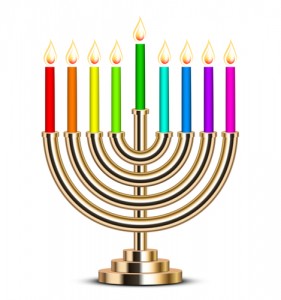What’s the view of the major world religions on menstruation? In Judaism women are considered ritually unclean half of their fertile life. Not only the seven days of their menstruation, but also the week after. During this time of impurity, which they end with a mikvah (cleansing bath), they have to adhere to certain rules.
Purity is very important in Judaism and since menstrual blood is considered ritually unclean there are strict rules concerning menstruation. There is a ritual exclusion called ‘niddah’ which applies to a woman from the first day of her period to a week after the bleeding has stopped. During that time, literally any physical contact between male and female is forbidden.
Niddah
This includes eating from the same plate, sitting on the same couch cushion and sharing a bed. Among orthodox Jews, even passing objects between each other isn’t allowed: the man can only pick something up if the woman has placed it down on a surface. When married women are niddah, playing sports is forbidden as well. Touching and sexual intercourse is only allowed when niddah is over and the woman has cleansed herself by means of a mikvah (cleansing bath).
All bleeding from the vagina turns a woman niddah, so a mikvah is also necessary after childbirth. This ritual exclusion has its consequences: it prevents women from having the same religious positions as men. Women can’t become priests and have to sit in a separate place when they visit the synagogue. Others also see the benefits of the separation. Rabbi Raphael Evers, part of the Dutch-Israeli Church Institute since 1990, claims the two weeks abstinence prevents boredom: ‘Every time a woman rises from the mikvah is like the honeymoon period all over again.’
Read also:
Menstruating? No communion!
Menstruating? Fasting forbidden!
Pure or impure: that’s the question
Just a natural excretion
Honour your menstruation







